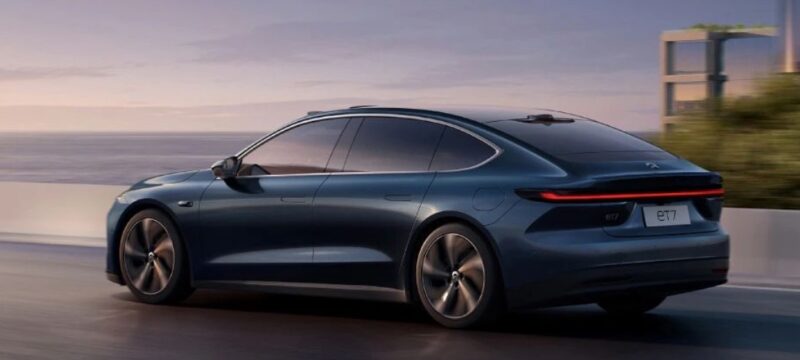Nio’s 150 kWh SSB pack to start deliveries in April, says WeLion
WeLion will deliver the first batch of semi-solid state batteries (SSB) with 150 kWh capacity in April 2024 to Nio. The following deliveries depend on Nio’s needs and are expected to rise gradually, the company added.
Beijing-based WeLion New Energy Technology delivered the first prototype for testing in June. Nio meanwhile conducted various internal trials, including a drive from Kunming to Beihai, setting a record for mass-produced electric vehicles traveling 1,145 kilometers (711 miles) on one charge. However, Kunming has an elevation of 1,890 meters (6,200 feet), and Beihai is a coastal city, so some Chinese media slammed the test. It is fair to add that Nio didn’t promote those test results much.
Last week, Nio conducted a live-streamed 150 kWh battery test, driving from Shanghai to Xiamen. The starting elevation at the battery swap station in coastal Shanghai was 18 meters, and the ending altitude was 23 meters, about 5 meters higher. The maximum altitude during the 14-hour journey was 316 meters. The temperature varied between -2 °C and 12 °C (28 – 54 °F). The speed was capped at 90 km/h, and the 2,490 kg (5,490 lbs) ET7 sedan driven by CEO William Li reached the 1,044 km range. 92% of driving was on Navigation-on-Pilot+ (NOP+)
“Nio’s 150 kWh battery is currently the battery pack with the highest energy density in mass production in the world and can be adapted to all Nio models on sale,” said Li.
Semi-solid state batteries are transition and compromise between liquid and solid-state batteries. Solid-state batteries can still have lithium on the anode, but instead of liquid electrolytes, they have solid ones, making them safer and having higher energy density. WeLion’s 150 kW semi-solid state battery (575 kg/ 1,268 lbs) is only 20 kg (44 lbs) heavier than the liquid NMC 100 kWh battery (555 kg/ 1224 lbs), Nio’s current flagship pack.
Editor’s comment
It doesn’t matter which Nio model will be the first to be equipped with the 150 kWh battery: Once it appears on the first battery swap station (PSS), all cars can have it. It is compatible with NT1 and NT2-based models, so even the older EVs are not left behind.
As the batter is very expensive, we expect most people will not buy it but only swap it into their vehicle as they need. For example, if they are going on a long weekend trip. Nio calls this service a BaaS (battery-as-a-service). If you have a 75 kWh battery in your car and want to upgrade to 100 kW, you pay 50 yuan (7 USD) extra daily or 880 yuan (125 USD) monthly. The price for upgrading to a new WeLion semi-solid state pack will likely be higher as the battery costs the same as the whole Nio ET5 sedan.



